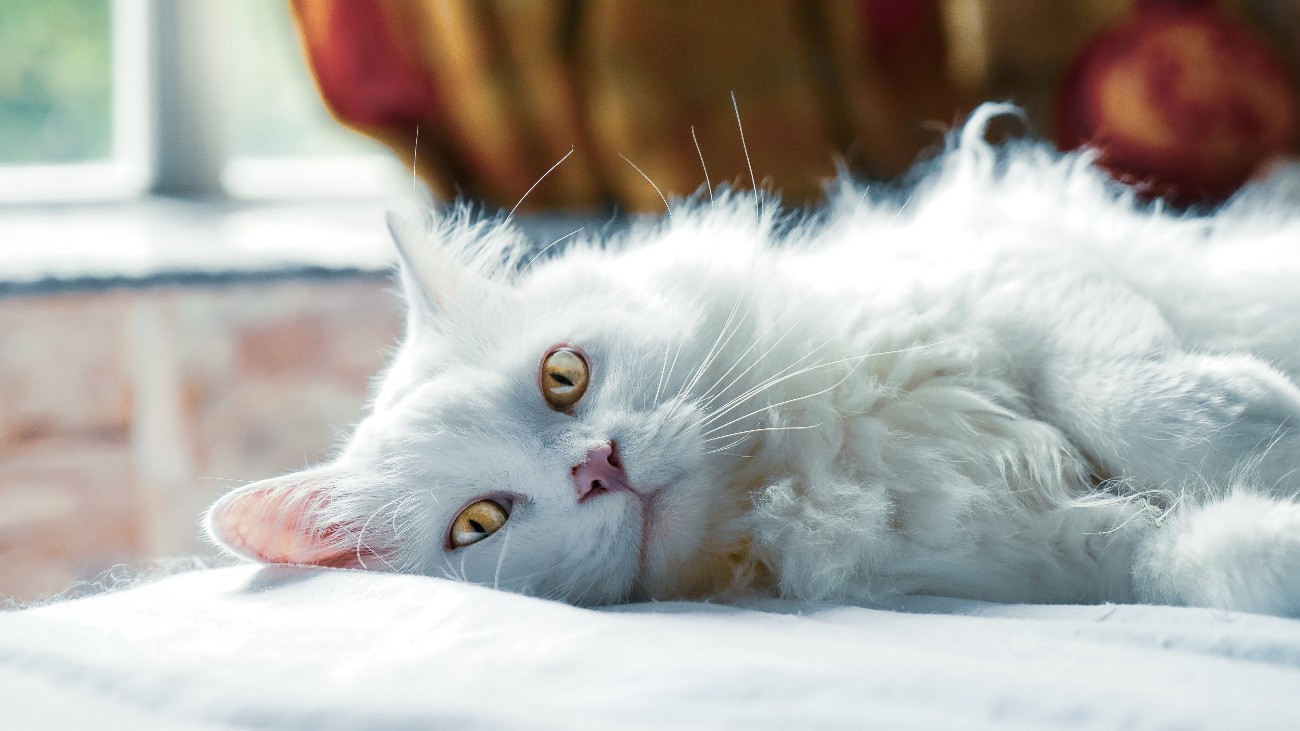
Probiotics has become a bit of a buzzword. Everywhere we look, yoghurts are being advertised as containing probiotics, and scientists are discovering new probiotics… and the same is happening in the cat world, too.
In this article we’ll talk about feline probiotics, what they are, and what evidence there is that they’re necessary.
What are probiotics?
Probiotics are ‘good’ or ‘friendly’ microbes, which are thought to be necessary for good digestion. They’re usually used in the context of bacteria, although yeasts can also be probiotics.
They are often confused with prebiotics, which are usually provided in the same products. Prebiotics are food molecules that are digested by the friendly bacteria and provide a nice environment for them to thrive.
Why do we need bacteria?
Bacteria are often painted as bad things, but the truth is that they’re everywhere, and many of them live in our guts.
Whilst we used to assume they were parasitic or ‘hitching a ride’, now we’re coming to understand that we live in a symbiotic relationship with these bacteria – we help them, by sheltering them and providing them with food, and they help us by digesting things we can’t and allowing us to absorb some of the products.
In fact, it’s not just bacteria in there – there’s an amazing mix of microorganisms now termed the ‘microbiome’.
Science has been looking into the microbiome for a few years now, and has found out some awesome things.
For instance, the microbiome between an obese person and a normal person is hugely different. And, if you take a sample of the microbiome from the normal person and put it into the obese person, they’ll start to lose weight.
They’ve also discovered that mothers produce ingredients in their milk that is of no use to the baby- but it can be digested by the bacteria. The implication is that nature thinks the microbiome is so important, mothers invest energy in feeding it and keeping it happy.
Cats with diarrhoea have been found to have a significantly different microbiome to cats with normal faeces, so it’s this difference that probiotics plan to affect.
So how do probiotics for cats work?

The most common probiotic for cats is Enterococcus faecium, although many brands of probiotics contain other types, including Saccharomyces (brewer’s yeast).
Most probiotics come in powder form – the powder contains ingredients and fillers to encourage your cat to eat them, but also contain the bacteria. It is very important that these bacteria are carefully coated to ensure they don’t die in the stomach acid.
Once the powder reaches the intestine, the outer coating dissolves, leaving the bacteria to find somewhere to live. In an unhealthy gut, they may have to fight off several ‘bad’ bacteria first, which is one reason why continual dosing of the good bacteria is so important.
The probiotics will eventually out-compete the bad bacteria, and start working on their half of the bargain – keeping the bad bacteria at bay and helping with digestion.
What’s the evidence?
There are currently very few studies on probiotics in cats, and none that are high-quality.
There is some evidence that probiotics may help with diarrhoea caused by antibiotics or stress in dogs. But there is also some evidence that many probiotic products don’t contain the ingredients that they claim.
There’s one study that showed a reduction in the length of time that shelter animals suffered with diarrhoea if they were taking probiotics, but it was a small study and not well controlled. Still, there is hope that better-quality studies will be undertaken soon.
It’s also thought that gut bacteria influence other things, like immune health, kidney disease and even skin disease. Studies into this are ongoing.
At the moment, there is not enough evidence to say one way or another whether probiotics are going to help with any gut diseases in cats, but it’s thought that good quality, guaranteed products are, at least, safe to use.
What makes a good probiotic for cats?
Ideally, you want a product that has been designed and made for cats. Whilst many dog products contain the same bacteria, the fillers may not be suitable for cats, so finding a species-specific one is a better way to ensure your pet’s safety.
You should look for a probiotic that guarantees the number and type of bacteria in every scoop or sachet, as it’s easy for brands to produce a product that doesn’t have many live bacteria left or that contain the wrong bacteria. You should also look out for brands that remember to coat the bacteria, otherwise there’s a high chance that none of them will reach the gut alive.
Don’t worry though, we’ve done the hard work of assessing the different products for you, so you can read our article on choosing the best probiotics for cats for more info.
Did you find this article helpful?